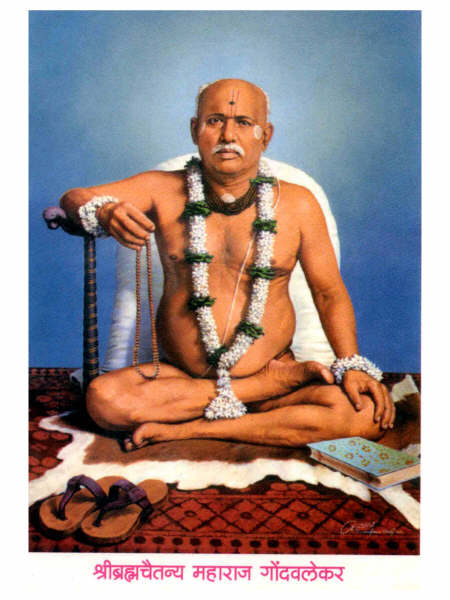Shri Gondavalekar Maharaj
In the 19th and early 20th century India was undergoing an enormous change in its educational system and its political and religious beliefs. The entire social structure was shaken and the age-old values were getting lost in Modern Times. This state of affairs of instability in every walk of life brought about renaissance in political thinking, education, abolition of Caste System and more importantly in spiritual thinking. In India, this period of approximately hundred and fifty years saw luminous spiritual masters, gurus and saints working silently in and through the masses for spiritual uplifting and realization of the 'Ultimate Truth'. Shri Gondavalekar Maharaj was one of such galaxy of saints who did specific work for spiritual uplifting through an ancient but re-defined Sadhana (spiritual practice) of Namasmaran (Chanting of Holy Name).

